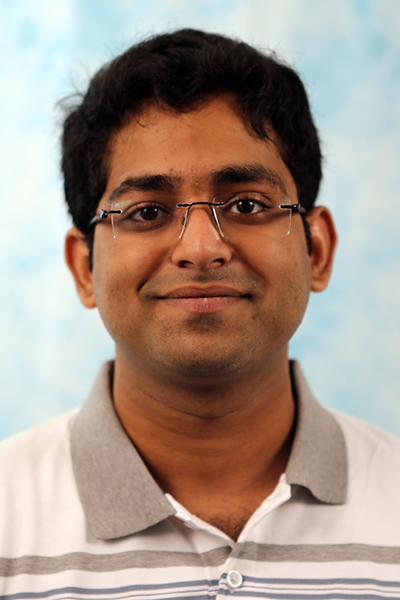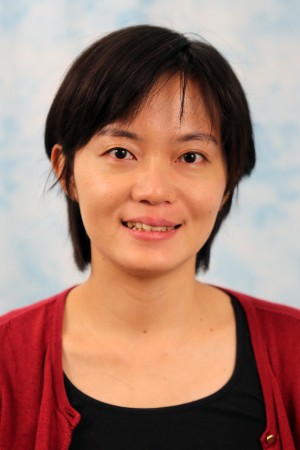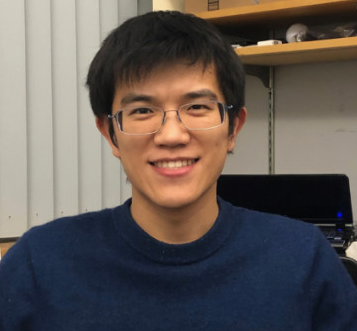PhD Thesis Defense
Carnegie Mellon University
Self-Supervising Occlusions For Vision
Abstract: Virtually every scene has occlusions. Even a scene with a single object exhibits self-occlusions - a camera can only view one side of an object (left or right, front or back), or part of the object is outside the field of view. More complex occlusions occur when one or more objects block part(s) of [...]
Carnegie Mellon University
Learning with Diverse Forms of Imperfect and Indirect Supervision
Abstract: Powerful Machine Learning (ML) models trained on large, annotated datasets have driven impressive advances in fields including natural language processing and computer vision. In turn, such developments have led to impactful applications of ML in areas such as healthcare, e-commerce, and predictive maintenance. However, obtaining annotated datasets at the scale required for training high [...]
Computational Interferometric Imaging
Abstract: Imaging systems typically accumulate photons that, as they travel from a light source to a camera, follow multiple different paths and interact with several scene objects. This multi-path accumulation process confounds the information that is available in captured images about the scene and makes using these images to infer properties of scene objects, such [...]
Neural Radiance Fields with LiDAR Maps
Abstract: Maps, as our prior understanding of the environment, play an essential role for many modern robotic applications. The design of maps, in fact, is a non-trivial art of balance between storage and richness. In this thesis, we explored map compression for image-to-LiDAR registration, LiDAR-to-LiDAR map registration, and image-to-SfM map registration, and finally, inspired by [...]
Carnegie Mellon University
System Identification and Control of Multiagent Systems Through Interactions
Abstract: This thesis investigates the problem of inferring the underlying dynamic model of individual agents of a multiagent system (MAS) and using these models to shape the MAS's behavior using robots extrinsic to the MAS. We investigate (a) how an observer can infer the latent task and inter-agent interaction constraints from the agents' motion and [...]
Carnegie Mellon University
Parallelized Search on Graphs with Expensive-to-Compute Edges
Abstract: Search-based planning algorithms enable robots to come up with well-reasoned long-horizon plans to achieve a given task objective. They formulate the problem as a shortest path problem on a graph embedded in the state space of the domain. Much research has been dedicated to achieving greater planning speeds to enable robots to respond quickly [...]
Carnegie Mellon University
Visual Dataset Pipeline: From Curation to Long-Tail Learning
Abstract: Computer vision models have proven to be tremendously capable of recognizing and detecting several real-world objects: cars, people, pets. These models are only possible due to a meticulous pipeline where a task and application is first conceived followed by an appropriate dataset curation that collects and labels all necessary data. Commonly, studies are focused [...]
Carnegie Mellon University
Optimization of Small Unmanned Ground Vehicle Design using Reconfigurability, Mobility, and Complexity
Abstract: Unmanned ground vehicles are being deployed in increasingly diverse and complex environments. With modern developments in sensing and planning, the field of ground vehicle mobility presents rich possibilities for mechanical innovations that may be especially relevant for unmanned systems. In particular, reconfigurability may enable vehicles to traverse a wider set of terrains with greater [...]
Carnegie Mellon University
Towards Reconstructing Non-rigidity from Single Camera
Abstract: In this talk we will discuss how to infer 3D from images captured by a single camera, without assuming the target scenes / objects being static. The non-static setting makes our problem ill-posed and challenging to solve, but is vital in practical applications where target-of-interest is non-static. To solve ill-posed problems, the current trend [...]
Large Scale Dense 3D Reconstruction via Sparse Representations
Abstract: Dense 3D scene reconstruction is in high demand today for view synthesis, navigation, and autonomous driving. A practical reconstruction system inputs multi-view scans of the target using RGB-D cameras, LiDARs, or monocular cameras, computes sensor poses, and outputs scene reconstructions. These algorithms are computationally expensive and memory-intensive due to the presence of 3D data. [...]


